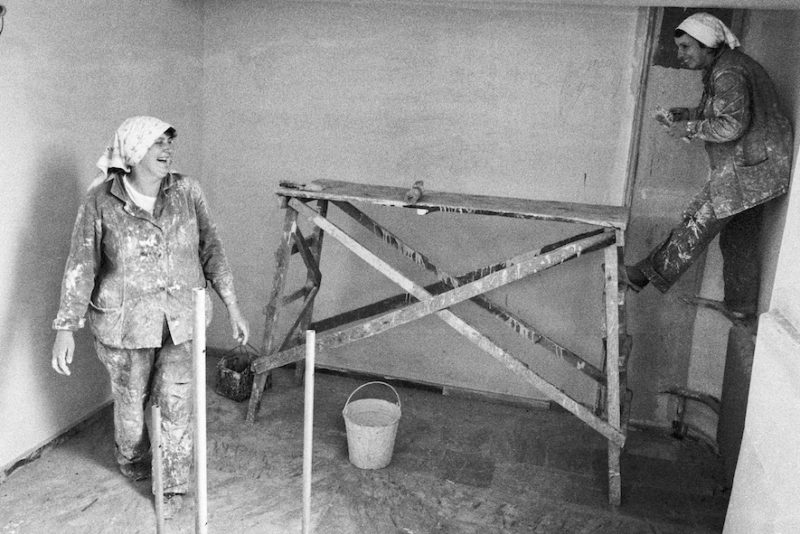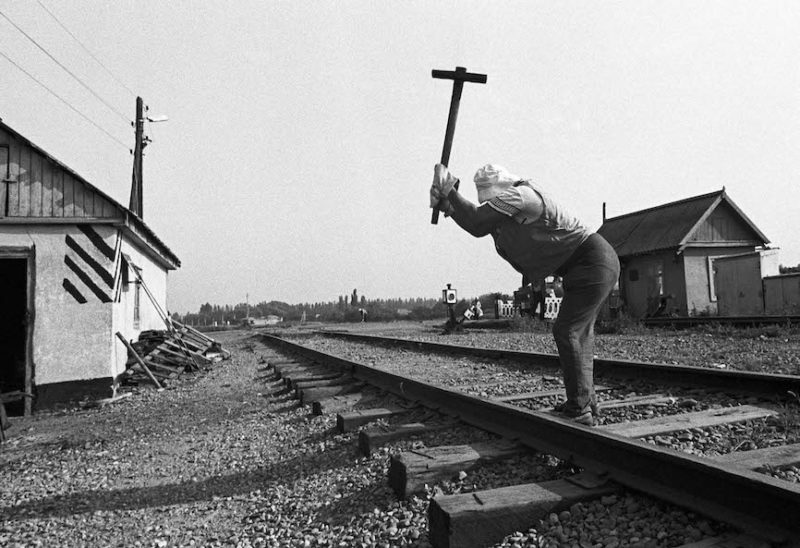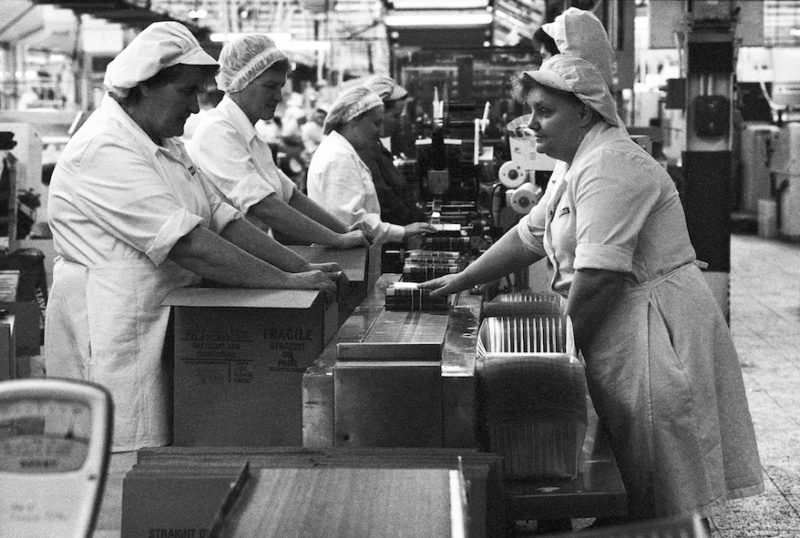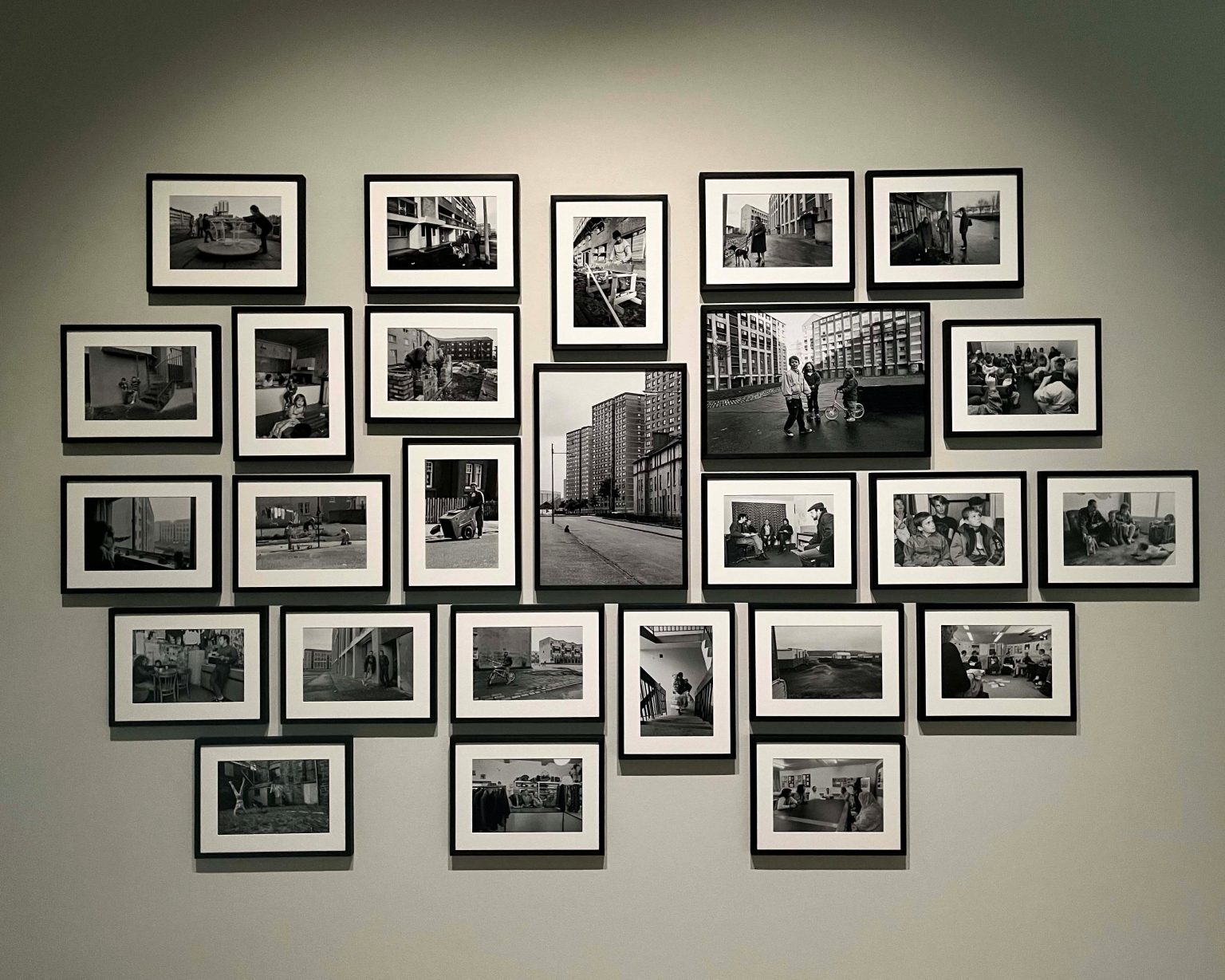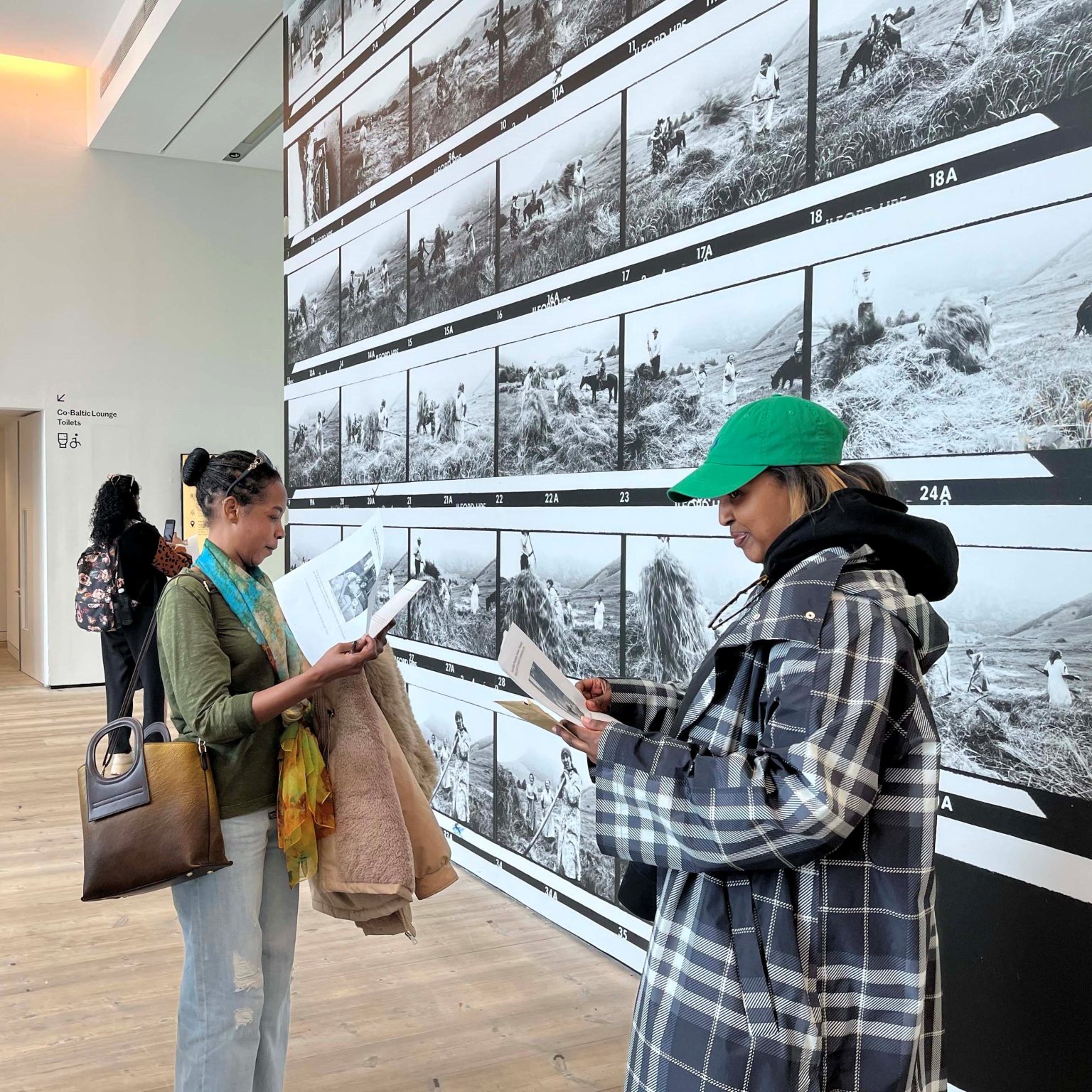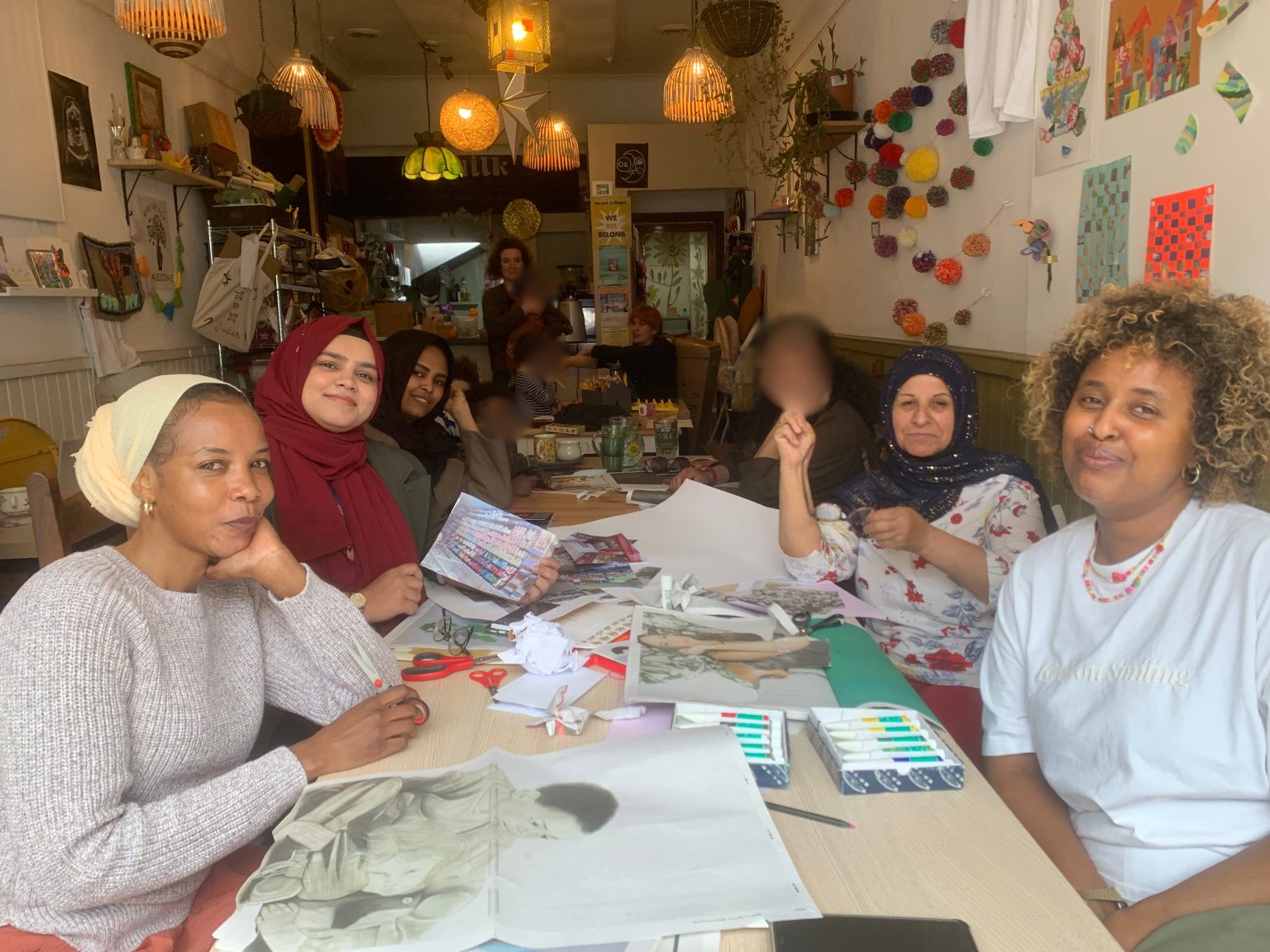Women at Work
Najma Abukar
‘Women at Work‘ was a participatory photography project which shed light on the diverse perspectives of women who have experienced the asylum system. The project series was a collaboration between Edinburgh Napier University, MILK Café and Cross Borders. Led by photographer Najma Abukar, the workshop sessions provided a platform for women to document and share their stories through photography.
The project drew inspiration from the work of feminist photographer and social documentarian, Franki Raffles (1955-1994). Raffles, based in Edinburgh, was renowned for her work that highlighted women’s lives and struggles both in Scotland and globally. Her grandparents, Jewish immigrants who fled Eastern European persecution in the early 20th century, deeply influenced her perspective. Raffles travelled extensively, capturing the lives of women in the UK, the Soviet Union, China, Zimbabwe, and the Caribbean, advocating for women’s rights and bringing their challenges to the forefront.
As a response to Raffles’ work, ‘Women at Work‘ explored the relevance of her photography to contemporary experiences of women in the UK. The initiative began with a visit to Raffles’ archive in St. Andrews, where Najma Abukar developed the workshop sessions. These sessions responded to the themes found in Raffles’ work and the context of women’s labour in the local area.
Over six weeks, participants gathered at MILK Café, engaging in group discussions and photography walks around the neighbourhood under Najma’s guidance. The women who took part all had an interest in photography, with varying degrees of experience behind the lens. The workshops provided a space to support each other in pursuing this interest, and to explore the interconnected histories between Raffles’ subjects and the participants themselves. Through photography, they shared their experiences and documented the stories of women working in Govanhill. Their discussions touched on critical subjects such as the right to work, barriers to employment, legal protections for refugee and asylum-seeking women, domestic labour, and health and well-being.
A highlight of the workshops was a visit to Newcastle’s Baltic Art Centre to view “Franki Raffles: Photography, Activism, Campaign Works,” the first major retrospective exhibition of Raffles’ work. This visit allowed participants to further connect with Raffles’ legacy and draw inspiration for their own photographic journeys.
‘Women at Work‘ not only honored Franki Raffles’ pioneering work but also empowered women seeking asylum to tell their own stories, come together and experiment with photography.


